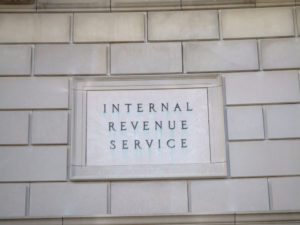
May 24, 2016; Reuters
An intriguing four-way battle is forming over the issue of tax-exempt organizations providing lists of donors to the IRS and state regulators.
For many years, most tax-exempt organizations, including charities, have had to disclose the names and amounts given by major donors on Schedule B of their annual Form 990 return. This year, the House Ways and Means Committee passed legislation by a party-line vote to stop this practice as it applies to most contributions. GOP proponents cited multiple instances of federal and state governments’ mishandling of confidential donor information, resulting in its being disclosed to the public. (Most states require copies of Form 990 returns be provided by nonprofits based in or raising money in their states.) Meanwhile, the IRS is apparently gearing up to propose new regulations, possibly in December, that would limit which nonprofits and whose gifts must be disclosed on the Form 990. Whether done by legislation or regulation, it appears that in the future the IRS will be collecting far less information on donors than it currently does.
State regulators and watchdog organizations are incensed in significant part by what they see as a Republican attempt to further conceal the identities of donors to “dark money” nonprofits involved in political campaigns. Further, state regulators argue that knowing donor identities reported on Schedule B can be key to identifying criminal activities involving charities (often inaccurately referred to as “charity fraud”). Hugh Jones, Hawaii’s deputy attorney general, said, “It’s important forensic data to us state regulators. It’s evidence we can consider using in an investigation to determine whether a charity’s board has breached its fiduciary duty.”
Sign up for our free newsletters
Subscribe to NPQ's newsletters to have our top stories delivered directly to your inbox.
By signing up, you agree to our privacy policy and terms of use, and to receive messages from NPQ and our partners.
Under H.R. 5053, and presumably under the independent, yet-to-be announced IRS proposed regulations, donations involving a nonprofit’s officers, directors, trustees, and key employees would still need to be reported confidentially to the IRS. These disclosures would assist the IRS in identifying cases of private inurement and other conflicts of interest involving a nonprofit and its leadership.
David Bossie, president of the conservative group Citizens United, said in support of the bill, “I don’t know of one case where a fraud was proven by the IRS having had the Schedule B.” Rep. Peter Roskam (R-IL) said: “The IRS is ill-equipped to deal with sensitive data, and there’s a great deal of vulnerability. Confidentiality breached chills First Amendment rights.”
New York and California are two states seeking to access donor lists, but they’re running into court challenges from groups like the Americans for Prosperity Foundation and Citizens United. Within the last month, a federal judge in California has ruled against California Attorney General Kamala Harris, who is expected to appeal the ruling. Traditionally, the Supreme Court has affirmed, and the IRS has recognized, the confidentiality rights of donors in cases involving progressive organizations like the NAACP and the Socialist Workers Party as a protection against donor harassment.
Talking about “dark money” in terms of the proposed legislation is strange because neither the bill nor the IRS’s proposed regulatory changes will affect disclosure of donors to 501(c)(4) “social welfare” organizations. 501(c)(4) organizations have never been required to fill out Schedule B and disclose their donors. That’s a key reason why these organizations’ revenues are referred to as “dark money.” The issue is that Congressional Democrats and generally left-of-center election interest groups favor even more transparency—donor disclosure—rather than less. They frequently campaign to “overturn” the Supreme Court’s Citizens United decision in 2010 that the First Amendment prohibits the federal government’s restricting independent political expenditures by a nonprofit corporation.
Will donations to 501(c)(3) charities and several other types of tax exempt entities become “dark money” like donations to 501(c)(4)s? If so, what effect will that have on both fraud enforcement and oversight of political activity by nonprofits? Can a way be found to increase transparency while also guaranteeing First Amendment freedoms and protecting donors from harassment, by government or others, as a result of donations being more widely reported and potentially becoming public?—Michael Wyland












